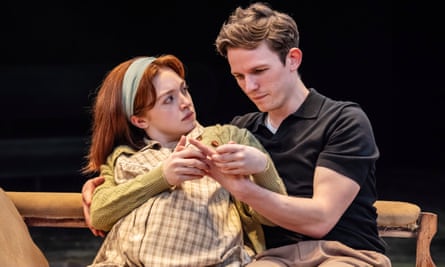Gather a group of writers together and they will soon be complaining about the question producers inevitably pose about their projects: “Why now?” It’s a fair question, and one that needs to be posed when reviving a play – such as Shelagh Delaney’s defining work A Taste of Honey, first staged in 1958.
On its premiere, the play was a sensation. It now makes its way back to the stage at the Royal Exchange in Manchester, not far from where it is set, in Delaney’s home town of Salford. Modern audiences are warned of outdated language and attitudes to race and homosexuality, but when you have a character saying she will “drown it” when she discovers that her white daughter will be having a black baby, there needs to be a serious interrogation of the necessity of the play for today.
Virtually a two-hander between feckless mother Helen (Jill Halfpenny) and her mature-beyond-years teenage daughter, Jo (Salfordian Rowan Robinson), Delaney’s grenade into genteel 1950s theatre must have seemed shocking when it was first staged. There are men in the story: one in a line of partners who discards Helen; the father of Jo’s baby; and a gay friend, Geoffrey, who tries to save Jo. Played by David Moorst, Geoffrey is the only male character successfully dragged beyond caricature.

Robinson’s Jo is highly watchable, witty and sparky with a look of steel in her eyes that occasionally fades to show vulnerability and fear at the situation she finds herself in, pregnant by a missing father. Halfpenny, as the mother desperately trying to cling on, gives Helen a touch of Blanche DuBois.
When the two women are “enjoying” one of their slanging matches, there is an undeniable frisson. Nuance is lent by directorial flashes from Emma Baggott, notably with musical punctuation from Nishla Smith reminding us we’re in a dirty old town and a moving metal structure designed by Peter Butler that threatens to collapse like the lives above which it hangs. But the question remains: why now?
